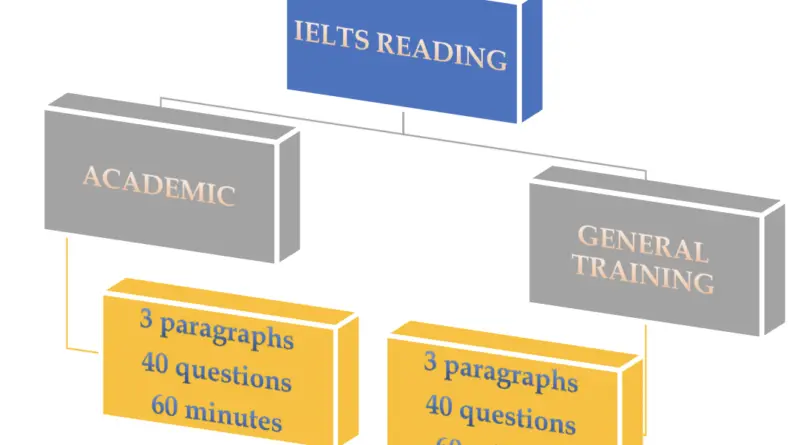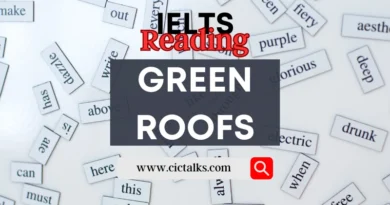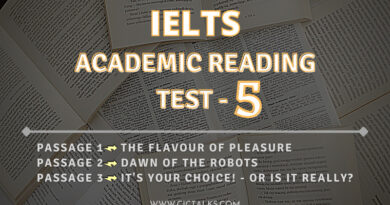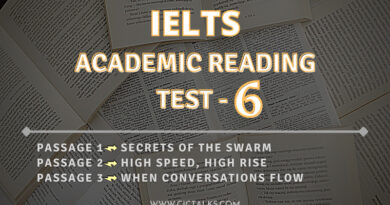IELTS Reading Test Beginners Guide – Pattern & Tips
Do you know most candidates get confused in the IELTS Reading test? Well, the Reading section is still a puzzle for many candidates.
In this article, we will delve into the IELTS reading test format with some useful band 9 strategies.
Yes! you heard it right, BAND 9 is achievable.
RELATED:
- Timur Gareyev – Blindfold Chess Champion reading answers
- Does education fuel economic growth reading answers
- Bats to the rescue reading answers
- Building the Skyline: The Birth and Growth of Manhattan’s Skyscrapers reading answers
- Palm oil reading answers
- Alfred Wegener reading answers
IELTS Reading Test Pattern
IELTS reading examination has 3 sections (40 questions, 60 minutes), which are designed to test candidate’s English reading proficiency. However, these sections differ for both IELTS Academic and General Training modules.

In Academic IELTS, the Reading section consists of 3 long paragraphs with texts extracted from magazines, newspapers, academic journals etc. On the other hand, in General Training Reading, the 3 (short to medium length) sections are focused on jobs, career and everyday living with texts extracted from newspapers, company handbooks, business documents, online resources etc.
The test is divided into the following parts :
| Reading Passage 1 | Questions 1 to 13 |
| Reading Passage 2 | Questions 14 to 27 |
| Reading Passage 3 | Questions 28 to 40 |
Reading Passage 1 Sample
Questions 1-5
Do the following statements agree with the information provided in the paragraph ?
Write True/False/Not Given
TRUE – if the statement is in agreement
FALSE – if the statement is in contradiction
NOT GIVEN – if there is no information available in the passage
1. The earliest domestic clocks were developed with an aim of providing household routine.
2. Medieval clocks stayed on the property when the homes were sold by the owners.
3. Pulling the weights on wall-mounted clocks need specific skillset.
4. The spring placed inside a watch allows it to move around.
5. The firstly used spring-driven clocks had problem keeping the right time.
RELATED:
- The Thylacine reading answers
- A second attempt at domesticating the tomato reading answers
- Insight or evolution reading answers
- The Dead Sea Scrolls reading answers
- Stadiums: Past, Present and Future reading answers
- Materials To Take Us Beyond Concrete reading answers
- The Steam Car reading answers
- The Case for Mixed-ability Classes reading answers
- Green roofs reading answers
Question 6-10
Choose NO MORE THAN THREE WORDS from the paragraph for every answer.
6. Weight-driven clocks were made of ……………………………….
7. Decorated clock cases fixed to the wall with the help of ……………………………….
8. Spring-driven clocks were initially produced at ……………………………….
9. Spring-driven clocks had problems keeping ………………………………. even.
Questions 10-13
Choose NO MORE THAN THREE WORDS from the paragraph for every answer.
10. What does a fusee appears like ?
11. The spiral groove on a fusee is joined to what ?
12. What object is needed to wind the spring on the fusee ?
13. The gradual reduction of the fusee groove ensure what ?
Reading Passage 2 Sample
Questions 14-21
Choose the correct heading for each passage from the headings given below.
i. A lack of information about what is inside trash ii. A change in attitude of the public iii. The uncertainty involved in trash destination iv. A typical present action of householder v. Formulating the extraordinary rubbish solution vi. Selection of Centres for recycling vii. A method to locate what happens to rubbish viii. Details of the research process ix. Variations in the effect of trash on surrounding area x. Potential future sources of useful materials xi. Network coverage for telecommunication devices
14. Paragraph A – ………………
15. Paragraph B – ………………
16. Paragraph C – ………………
17. Paragraph D – ………………
18. Paragraph E – ………………
19. Paragraph F – ………………
20. Paragraph G – ………………
21. Paragraph H – ………………
Questions 22-23
According to the writer, which TWO of the following things must happen ?
A. Household awareness regarding waste-sorting process
B. Find out the quantity of waste in the system
C. Know more about the types of waste thrown outside
D. Business and factories must adhere to the set guidelines
E. We should find and reuse valuable resources
Questions 24-27
Choose NO MORE THAN THREE WORDS from the paragraph for every answer.
24. Which rubbish item does the author use as an example to demonstrate the rubbish dealing ways ?
25. Which metropolitan city is involved in the two stages of research ?
26. What people have already tried to get products reach consumers ?
27. What general term is used to cover a wide array of different types of rubbish ?
Reading Passage 3 Sample
Questions 28-32
Which SECTION contain the following information?
28. Animals cause problems for a member dominating in their group.
29. Young birds make use of their skills without any parental assistance.
30. Animal species and humans may descend from same origin.
31. Animals’ skills may develop as a consequence of spending time with humans.
32. Birds display dishonest conduct.
Questions 33-35
Choose the correct letter – A,B,C or D.
33. The writer mentions the dogs domestication so that …
A) to show how different they are from other animal species
B) to explain why they are easily researchable
C) to show their quick learning
D) to argue that they are suitable domesticated animals
34. A western scrub jay has shown …
A) an ability to deceive other birds
B) a talent to imitate other birds
C) a skill at hiding sticks
D) aggression in the presence of other birds
35. Kacelnik’s research has demonstrated that …
A) captive birds lacks knowledge of stealing from other birds
B) birds can use their memories at later moments
C) monkeys can remember the past events
D) primates are affected by their surrounding connections
RELATED:
- The Development of the Underground Railway reading answers
- Urban Farming reading answers
- Forest Management in Pennsylvania, USA reading answers
- Conquering Earth’s Space Junk Problem reading answers
- Stonehenge reading answers
- Living With Artificial Intelligence reading answers
- An Ideal City reading answers
Questions 36-40
Write Yes/No/Not Given
YES – if the statement is in agreement with the writer
NO – if the statement is in contradiction with the writer
NOT GIVEN – if there is no information available in the passage
36. Scientists forecasted primate ability to make use of implements.
37. Chimpanzees had surroundings that urge them to hone their skill.
38. Chimpanzees display that they love problem-solving.
39. Wild observations show that crows learnt by imitating.
40. Complex thinking processes may be shown by western scrub jays.
Tips to get band 9 in the IELTS Reading Test
- To improve your Reading proficiency, first make sure that you are familiar with variety of English texts. This will help you develop the ability to skim the text quickly.
- Read each question carefully before starting to read the passage. Underline the keywords that indicate the required information.
- Remember to keep an eye on the clock and divide your time accordingly into three sections.
- The Reading passages always have the information you look for. Just act like Sherlock Holmes throughout the exam.
- Don’t leave any blanks, it’s better to guess an answer as there is NO negative marking.
- The IELTS Reading test 2022 may sometimes include complex questions based on overall understanding of the passage. For instance, the question may require you to find the central idea of the passage. Highlight keywords in that case and build general idea around the topic.
- Make sure that your responses do not exceed the WORD LIMIT (i.e. one, two, three and/or a number)
- Remember to look for paraphrases and alternate words or ideas in the passage. They are there in the passage to test vocabulary of the candidate.
- Stay Calm as a monk and concentrate on the exam. Don’t panic if you are unable to answer any question, leave them for a while and come back later.
- Take care to write your answers in the appropriate box on the answer sheet.
- In paper-based IELTS, you must write down your responses on the answer sheet in the given time frame (60 minutes).
Final Thoughts
Candidates frequently ignore the Reading portion of the test, and as a result, a lack of practise could be problematic in the future.
To summarise, never ever approach the IELTS Reading test like a bowl of duck soup; practise thoroughly to learn synonyms for often encountered vocabulary structures.
Wish you best of luck in your examination.
Happy learning !!




